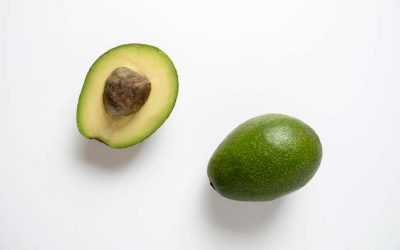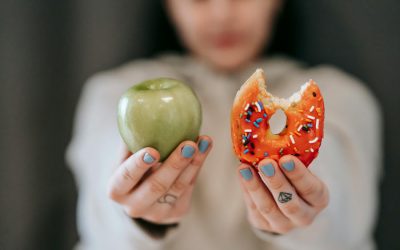Happy Easter to all our readers! Whether you’re celebrating with family, enjoying a peaceful long weekend, or simply indulging in a bit of chocolate, we hope this time brings a sense of renewal and enjoyment.
Last week, we explored how even our so-called “healthy” diets may be letting us down due to the depletion of nutrients in our food supply. This week, as we unwrap Easter treats, it’s the perfect time to shine a light on another key issue lurking in our diets: sugar.
A Sweet Celebration With a Sour Side
Easter is traditionally a time for sweet indulgence. Think chocolate eggs, hot cross buns, and sugary treats tucked into colourful baskets. But as we enjoy these festive favourites, it’s worth pausing to consider what sugar is really doing to our health.
The sugar crisis is far from new, but it’s still growing. Despite overwhelming evidence linking sugar to obesity, diabetes, cardiovascular disease, and more, it remains a dominant force in our food system, often showing up where we least expect it.
The Sugar Industry: A Sweet Deception
For decades, the sugar industry has worked hard to protect its image. With powerful lobbying, clever marketing, and carefully funded research, it’s shifted the blame for chronic disease away from sugar and onto fat. In the 1960s, internal documents (now public) revealed that the Sugar Research Foundation paid Harvard scientists to publish studies downplaying sugar’s role in heart disease, while pointing the finger at saturated fat instead. This research, published without disclosure of the industry’s involvement, went on to shape decades of dietary guidelines, fuelling a widespread fear of fat and letting sugar off the hook.
As the low-fat food movement gained momentum in the 1980s and 90s, the food industry responded by adding more sugar to processed foods to compensate for the loss of taste and texture. Ironically, these low-fat products, marketed as healthy alternatives, became laden with added sugars. What was intended to be a healthier choice turned out to be a wolf in sheep’s clothing, contributing to a rise in sugar consumption across the population.
Since then, sugar has crept into nearly everything, from cereals and sauces to “healthy” yoghurts and snack bars, often hiding under names like cane syrup, agave nectar, glucose solids, or fructose. It’s been marketed as an energy source, a treat, even part of a balanced diet. But the evidence tells a different story. Excess sugar, particularly refined and added sugars, is now recognised as a major driver of chronic conditions including obesity, diabetes, and heart disease.
So while Easter may be a time to enjoy a few chocolate eggs, it’s worth reflecting on whether sugar has earned its sweet spot in our daily diets, or have we been misled? And because sugar can be addictive, it keeps us coming back for more, fueling a cycle that’s profitable for food companies but costly for our wellbeing.
The Link Between Sugar and Health
The evidence against sugar is overwhelming. Refined and added sugars, especially in large quantities, have been directly linked to a range of chronic conditions, including obesity, diabetes, cardiovascular disease, and metabolic disorders. These issues often start quietly, but over time, the effects of excess sugar begin to show.
One of sugar’s most damaging impacts is its ability to promote insulin resistance. When we eat too much sugar, our body becomes less responsive to insulin, the hormone responsible for regulating blood sugar levels. This leads to higher blood sugar levels, increased fat storage, and a greater risk of conditions like type 2 diabetes. Additionally, sugar promotes inflammation in the body, which is a key driver of heart disease and other chronic health issues.
It’s not just about the sugary treats we’re familiar with; hidden sugars in processed foods are the real culprit. Many everyday items, from bread to sauces to processed snacks, contain high amounts of added sugars, making it easy to surpass the daily recommended intake without realising it
Balancing Enjoyment With Awareness
That doesn’t mean you can’t enjoy your Easter chocolate. It’s about balance, not deprivation. But being more aware of where sugar hides, and the toll it can take on our health, gives us the power to make better choices moving forward.
Simple Ways to Tame the Sweet Tooth:
- Opt for Dark Chocolate: Choose chocolate that’s 70% cocoa or higher as it’s lower in sugar and richer in antioxidants.
- Read the Labels: Sugar has many aliases, so watch for ingredients like fructose, maltodextrin, corn syrup, or rice syrup.
- Try Natural Sweeteners: Raw honey, stevia, or monk fruit can be gentler alternatives in moderation.
- Prioritise Whole Foods: Fruits, nuts, and vegetables are naturally sweet and packed with nutrients, so no added sugar required.
Easter as a Gentle Reminder
This Easter, enjoy your treats. But let it also be a reminder to reflect on your relationship with sugar. Reducing hidden sugars in your everyday meals doesn’t mean missing out, it means taking back control from a system designed to keep us hooked.
Small steps can make a big difference. And with each choice we make, we move closer to better health, without losing the joy of a sweet celebration.
References:
- JAMA Internal Medicine (2016) – Revealed how the sugar industry paid Harvard researchers to shift the blame from sugar to fat: https://jamanetwork.com/journals/jamainternalmedicine/fullarticle/2548255
- Dr. Robert Lustig – Leading expert on sugar’s impact on metabolic health; author of Fat Chance.
- BMJ (2013) – Meta-analysis showing excess sugar consumption is linked to weight gain and increased body fat: https://www.bmj.com/content/346/bmj.e7492
- World Health Organization (2015) – Guidelines recommending that adults and children reduce free sugar intake to less than 10% of total energy intake: https://www.who.int/publications/i/item/9789241549028




